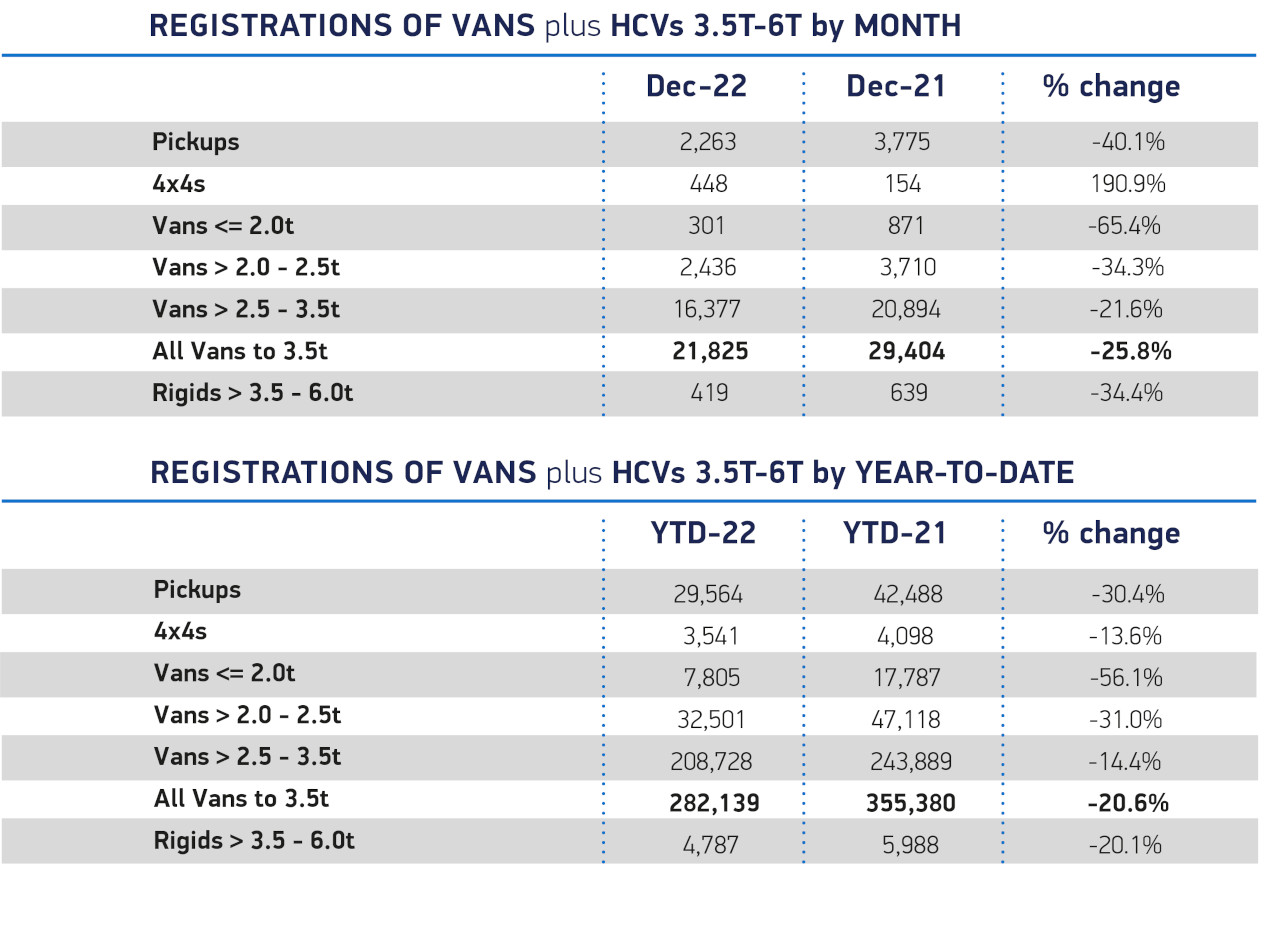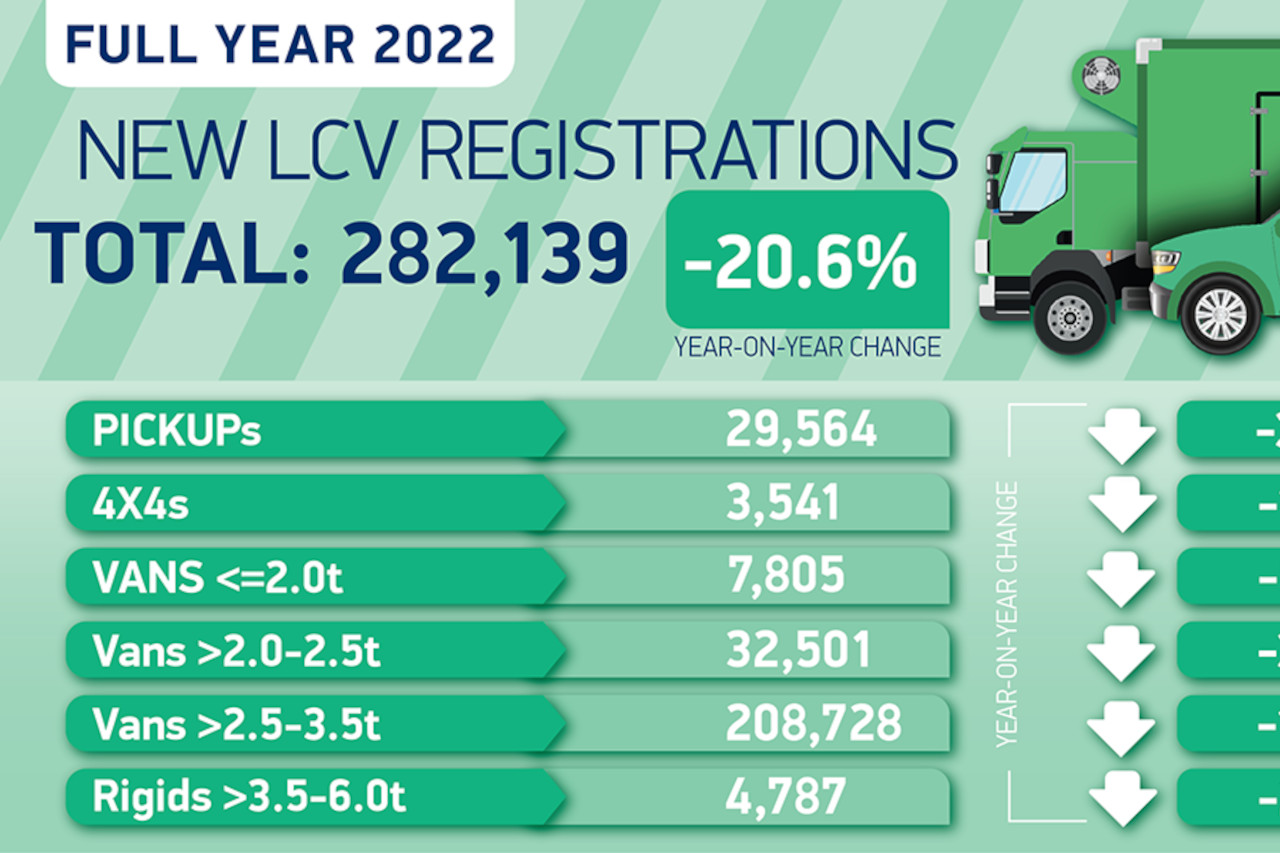2022 was a poor year for van registrations.
Year-on-year, UK new light commercial vehicle (LCV) registrations are down 20.6%, demonstrating that post-pandemic supply chain issues persist.
2021 was a much stronger year and promised a better recovery following so many issues during the pandemic. But while 2021 showed good numbers, 2022 was a steady decline, leading to the worst year (pre-pandemic) since 2013.
Demand remains high and is driving strong order books. But global supply chain issues continue to plague production, resulting in long lead times and low production numbers.
The industry is forecast to make some strong moves to recovery in 2023, with a predicted 330,000 new LCVs being registered. That is a little lower than 2021 (355,380) but is a bit improvement on 2022, which was only 282,139 new registrations.
One positive note to take from 2022 is the steady increase of the registration of battery electric vehicles (BEVs). BEV registrations are up 31% over 2021, and their market share has increased to 5.9% from 3.6%.
As the BEV market share grows, there are more challenges to face. The SMMT state that “public charging infrastructure, however, is already insufficient for the number of plug-in vehicles already on the road and is generally geared towards cars rather than vans.” Without strong investment in electric infrastructure, it looks unlikely that the country will be ready for the ban on the sale of petrol and diesel vehicles in 2030.

Mike Hawes, SMMT Chief Executive, said, “While demand for new vans remained robust throughout 2022, replicating last year’s high levels of fleet renewal was always going to be a challenge with relentless supply chain disruptions and wider economic malaise. A return to growth is expected in 2023, but if this crucial sector is to deliver for the economy, society and the environment, action is needed from all stakeholders, particularly in the areas of charging infrastructure and fiscal frameworks, enabling more van buyers to make the switch.”
The shortages and low registrations have affected the leasing industry, as stock is difficult to come by and delivery ETAs have encountered delays. Many van leasing companies have had to cancel, delay, or offer alternative vehicles to meet their commitments.
Here at Van Ninja, we have done our utmost to acquire stock in-house. This has allowed us to have control over the vans we can lease and the delivery ETAs. While this has not been 100% successful, we believe it as given us the ability to keep our promises with our customers, and ensure that they have a positive experience despite the current supply and delivery issues.
Van Ninja will continue to acquire stock into 2023, so that customers can be confident that they will get the van they order in a timely manner.

